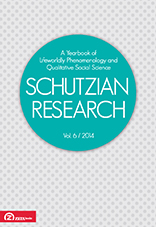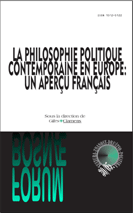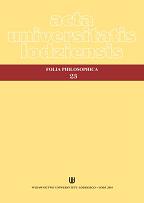
Necessidades do familiar no cuidado ao cliente com insufuciência renal crônica: uma perspectiva para a enfermagem
This study focuses on family members of clients with Chronic Renal Insufficiency (CRI) in hemodialytic treatment, signaling the importance of their participation in care aiming toward an adaptation of a new reality in one’s life. The objective of this study is as follows: to understand the meaning attributed by significant family members to their participation in caring for the client with CRI in hemodialytic treatment. This investigation was developed using a qualitative research modeled after Alfred Schutz’s phenomenological approach, namely to increase understanding in interaction with the other as a process of facilitating an understanding of one’s experience that constitutes the newly constructed reality. The subjects of the research were ten family members noted significantly for their care by the clients of a hemodialytic center from the state of Espírito Santo (Br). The results allowed to identify the care activities developed by the family members. The phenomenological interview consisted of a central question: what do you have in mind when caring for a family member with CRI? The analysis of the responses pointed principally toward two categories: the well-being of the client and the well-being of the family member, or caretaker. Generally, this demonstrates that the care given to the client by the family member is intended to enhance the health care needs of both the client and the family member, or caretaker. These perspectives support the quality of care through the nurse’s action in planning health and nursing care for the client as well as for the client’s family member, allowing recognition of each as a subject of his or her professional action.
More...

